Graham Reid | | 8 min read
Phoenix Foundation: Playing Dead

The phone call catches Luke Buda of the Phoenix Foundation at halftime in the All Blacks' unconvincing opening match of their Rugby World Cup campaign. I've seen the game against Argentina play out on an earlier broadcast so we agree he needs to watch the second half.
I call back later and naturally the conversation turns to rugby and we agree the team needed this shake-up in their first game.
We're hear to talk about music and specifically the new album Give Up Your Dreams with its seemingly ironic title , which he explains that after their previous double album Fandango is more telling than it sounds. But somewhat amusingly our conversation about the new album and current tour takes up something of a rugby metaphor and references.
They've played two shows so far, getting match fit as it were, and the songs on Give Up Your Dreams are more demanding than much of their previous work, so . . ..
You've done a lot of touring but do you, or the band, have any nervous tension these days before the first show? Do you need to just get that one under your belt to settle in, or is it pretty seamless these days?
It's a bit of both because it depends, we are playing all the songs from the new alum on this tour and they are quite a challenge on all fronts, for [new drummer] Chris O'Connor and [drummer] Will [Ricketts] and Tom Callwood it's a physical challenge. Like on Playing Dead from Give Up Your Dreams, Tom warms up for quite a while so his hand doesn't start cramping.
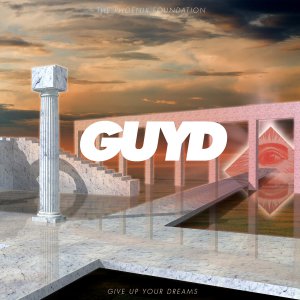 But also gear-wize because there are so
many gadgets on stage and strangely enough it's remembering all the
settings you have to change between songs. That can make a gig run
smoother and that's definitely something you get once you are on
tour.
But also gear-wize because there are so
many gadgets on stage and strangely enough it's remembering all the
settings you have to change between songs. That can make a gig run
smoother and that's definitely something you get once you are on
tour.
So the first night in Wellington there was a lot of “Hang on . . .” before some of the songs because someone realises they have to flick about four different things to get the right sound.
And we want to maintain a high standard, so there is a pressure there.
The gigs were good and the crowds were really into it, but I feel we really haven't hit our straps 100 percent yet.
Do you get together after a gig and have a debrief, you know like the coach gathers the team around . . .
Yeah we do. We've got better at that. You have to make sure you don't do it straight after the gig, and also it's about the psychology of language. You don't want to be too much of a bum-out all the time. Mostly the gigs go good and you have to try to keep some perspective on it. Just because one of the songs was three bpms slower than usual and it got a bit boring in the second verse doesn't mean it's the end of the world.
See, you've tainted this with a rugby vibe but yeah, we are looking out for complacency and also the perfect gig.
You said you are playing all the songs off this album on the tour but I guess you also have to balance a set. Are there things you can't not play, something like Buffalo for example, because people expect them?
It's not that we can't not play something I think. We didn't play 40 Years the first night in Wellington but we played it in Napier because we decided the encore was a bit skewed and we need something that was a crowd favourite.
I guess there is a balance. The new stuff excites the fans the most but the old stuff – like when we play Buffalo and 40 Years – it's pretty much about getting the crowd really going. For the energy of the gig you play something that is a favourite and that makes it better for everyone. It ignites the passion of the night.
Basically Buffalo, Damn the River, 40 Years and Bright Grey are bona-fide fan favourites. We've played Gone Fishing these past few gigs for the first time in about seven years.
I probably wrote that song when I was 19 and I'm 36 now. It feels like another band and another person did that, especially when you compare it to the new stuff which has got a crazy, musically intense vibe and feels so different to Going Fishing, which is as close as we come to a straight rock number.
That and Bright Grey are straight out rock songs.
Give Up Your Dreams has immediately become one of those, and that's cool because that gets people going. It's also the easiest of the new tracks to play.
It makes difference because we're not as intense and concentrating when we play that one, that probably helps the crowd enjoy it.
By the end of the New Zealand tour all the new songs will be under our belts and at that point we are going to be able to really start playing them, and that's important, especially for Chris.
One of the great things about having Chris in the band is he will keep on developing the way he plays a song as you go through a tour. It's crazy how much a little emphasis on a beat can really change the groove and you start feeling like you are really playing the songs as opposed to getting through them.
I hope me saying that that doesn't bum out anyone who was at one of those gigs. We played well but from a band perspective once we feel very comfortable with the material I think we will give a better performance.
I can't imagine what it must be like to be in a room with a bunch of people singing “Give up your dreams”. A life affirming but ironic experience.
It seems like . . . is the word 'meta'?. It's pretty Now. If you look at [Banksy's] Dismaland . . . and I saw an article just recently about parents need to stop telling their kids to expect extraordinary lives. I thought, “Ah, there's another one along the same line”.
The new realism, we are supposed to be realistic about life and not expect to much. Isn't that a trickle down message from the Right?
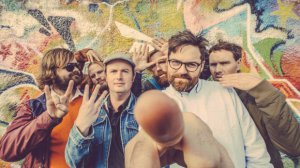 No, conservative governments are
totally selling you the lie that if you work hard you'll do well.
They are saying that if you expect basic decent workers rights then
that is unrealistic, but you just have to keep pulling your socks up.
It doesn't matter if you can't afford socks, just pull them up and
work harder.
No, conservative governments are
totally selling you the lie that if you work hard you'll do well.
They are saying that if you expect basic decent workers rights then
that is unrealistic, but you just have to keep pulling your socks up.
It doesn't matter if you can't afford socks, just pull them up and
work harder.
The band is made up of individuals with separate projects and lives, how difficult is it to reconvene the Phoenix Foundation. Does it come about when there is a collective understanding that there is something you are going to do and that takes priority over other things people might be doing?
Yeah, and we plan in advance. We've got Google calendars going on which everyone shares and we have a pretty meticulous manager, and it's definitely a priority for most of the band.
It's not like we have a regular night now where we go and practice like we did in the old days. We got together to do the band thing maybe five or six weeks before the album then go our separate ways, well as separate as you can be in Wellington. Conrad [Wedde] and Sam [Flynn Scott] and I would get down to really chipping away at the album with Will and Conrad coming in to extra bits here and there, and Chris went back to Auckland.
Basically we didn't reconvene until we were ready to do the album and then we rehearsed for two weeks straight before the tour.
It's not a problem really, just a case of people locking in dates. It's not a logistical nightmare but just we have to get focused.
People have suggested the new rhythm section has driven the band in a different direction. Do you think that or has it been incremental for you that you don't see it that way?
It's definitely true for a variety of reasons. Personally I had a funny time after Fandango which I worked on for about 15 months. It had a pretty good reception in New Zealand but an average reception in the UK and I hate to say it, but I definitely thought after that . . . my partner and I, and she didn't have a job at the time, we thought that was it.
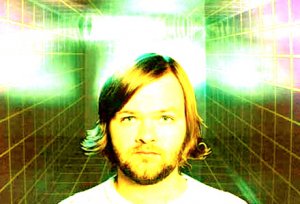 I never thought to myself that would
ever happen, I just always thought I was going to do music and that
would be it. But I had to think, “I'm 34 and got a couple of kids
and this shit is taking up all this time and there's no money”. It
was not possible just to do it for the love of it . . . although of
course I still do it for the love of it, but I have to take care of
the other stuff.
I never thought to myself that would
ever happen, I just always thought I was going to do music and that
would be it. But I had to think, “I'm 34 and got a couple of kids
and this shit is taking up all this time and there's no money”. It
was not possible just to do it for the love of it . . . although of
course I still do it for the love of it, but I have to take care of
the other stuff.
So I started thinking what it was about the band that I found the most exciting and unique at this stage after Fandango, and that thing was playing with Chris. Whatever vibe or style there was, he would commit to it.
I wanted to do something which would have a very different end result, so I would not sit down with an acoustic guitar and write a song. I was going to go from rhythm-based demos and that's where [the song] Mountain came from. I did a little demo and came up with that chorusy bit, but all the in-between bits came out at band practice, whereas in the past, like Thames Soup for example, Sam basically came in with a finished song and we played along with that.
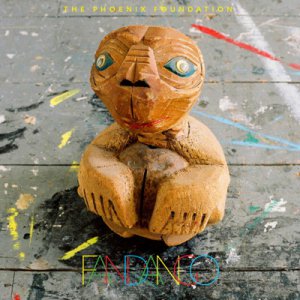 So it is true the rhythm section has
influenced the new sound. It's as much by the rest of us reacting to
them as them saying, “It's time for something new”.
So it is true the rhythm section has
influenced the new sound. It's as much by the rest of us reacting to
them as them saying, “It's time for something new”.
Chris has always been extremely into playing al the rock songs, it's not like he said, “I want to play more interesting beats”. But having him in the team meant we could base our game plan a bit more around that.
I noticed at the time when the album came out on your Spotify playlist you had a Steve Reich track and Talking Heads' Born Under Punches.
(laughs) Hmm.
Indeed, hmm.
That Talking Heads' song, it's on Remain in Light. . . Speaking in Tongues was pretty faultless too, that was their main crossover period, that moment which some bands get where they are really interesting and creatively vital but also become huge . . .very few people make that moment.
Radiohead made that moment. But often after that bands go downhill.
But with Radiohead once they hit the big time they got weirder and weirder which is to be commended.
And Steve Reich? The first time I heard Mallet Quartet it just blew my mind. I was doing a lot of chores around the house to Steve Reich and those funny ba-ba-badup-baiba things he was always doing.
And funnily enough my vibe for the album was for it all to be like that, to be a lot less likable than it is now. I thought we should do like a suite of tracks.
I don't want to be pretentious, but I wanted it all to be like Playing Dead and Silent Orb. It's probably really good that it wasn't. That would have had its own mana if we'd released an intense, almost “contemporary composition” vibe album.
Perhaps something that will come at some point, there's definitely enough musical pomposity in the band to do something like that.
THE PHOENIX FOUNDATION – GUYD - NEW ZEALAND TOUR
SEPTEMBER
Thursday 24th, Christchurch, Allen St Rock Bar
Friday 25th, Dunedin, Sammy’s
Saturday 26th, Queenstown, The Sherwood
OCTOBER
Thursday 1st, New
Plymouth, The Mayfair
Friday 2nd, Auckland,
Powerstation
Saturday 3rd, Tauranga, Mauao
Performing Arts Centre

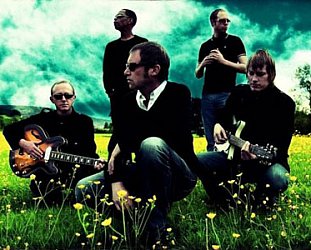

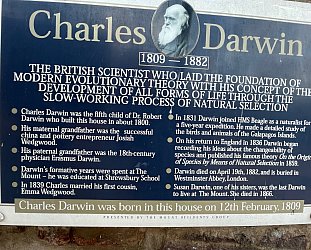
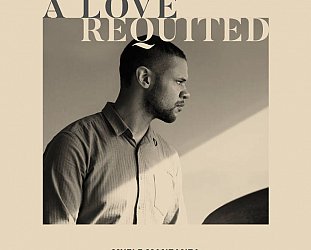
post a comment